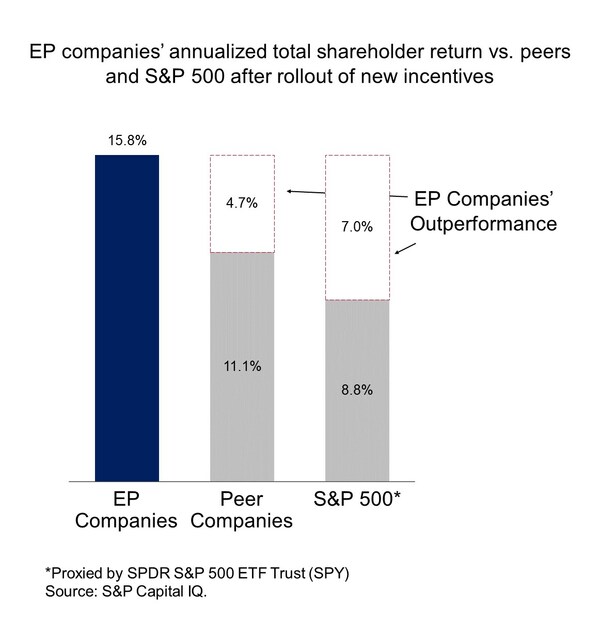PONTE VEDRA BEACH, Fla., March 7, 2023: New research shows that incentive compensation plans based on economic profit (EP) are associated with outperformance on shareholder returns and EBITDA margin.
The study by strategic advisory firm Fortuna Advisors analyzed the performance of these public EP companies, including Caterpillar, Deere & Co., and 3M, that deployed EP metrics in executive compensation plans to align management and shareholder interests. The full research paper, Driving outperformance: The power and potential of economic profit, was published last week in the Journal of Applied Corporate Finance.
Highlights include:
- EP companies outperformed their peers and the S&P 500 on annualized total shareholder returns, by an average of 4.7% and 7.0%, respectively, since rolling out EP incentives.
- EP companies enjoyed 3% higher EBITDA margins relative to peers over the same timeframe.
- Guidance from CEOs and CFOs on how to implement EP plans to drive long-term shareholder value creation.
The study explains why economic profit, which is used by sophisticated investors to value businesses and operating segments, is also an ideal internal performance measure.
Jeff Greene, who co-led the research, elaborated: “Economic profit balances revenue growth and overall profitability in a single measure and correlates with share price movements far better than traditional performance metrics. That’s why EP is suited to driving an ownership mindset in company managements over the long term—and why we see substantial outperformance when the measure is embedded in incentives.”
The study also suggests the benefits of EP in addressing corporate culture and so-called short-termism. As CEO Jeff Sanfilippo of John B. Sanfilippo & Son explains in his interview with the study’s authors,
“EP has driven enormous changes in the organization. It’s gotten every function to work together. … With EP everyone now understands our strategy and executes toward common goals. Our culture has evolved from one of command and control to one of empowerment, particularly of department leaders.”




















